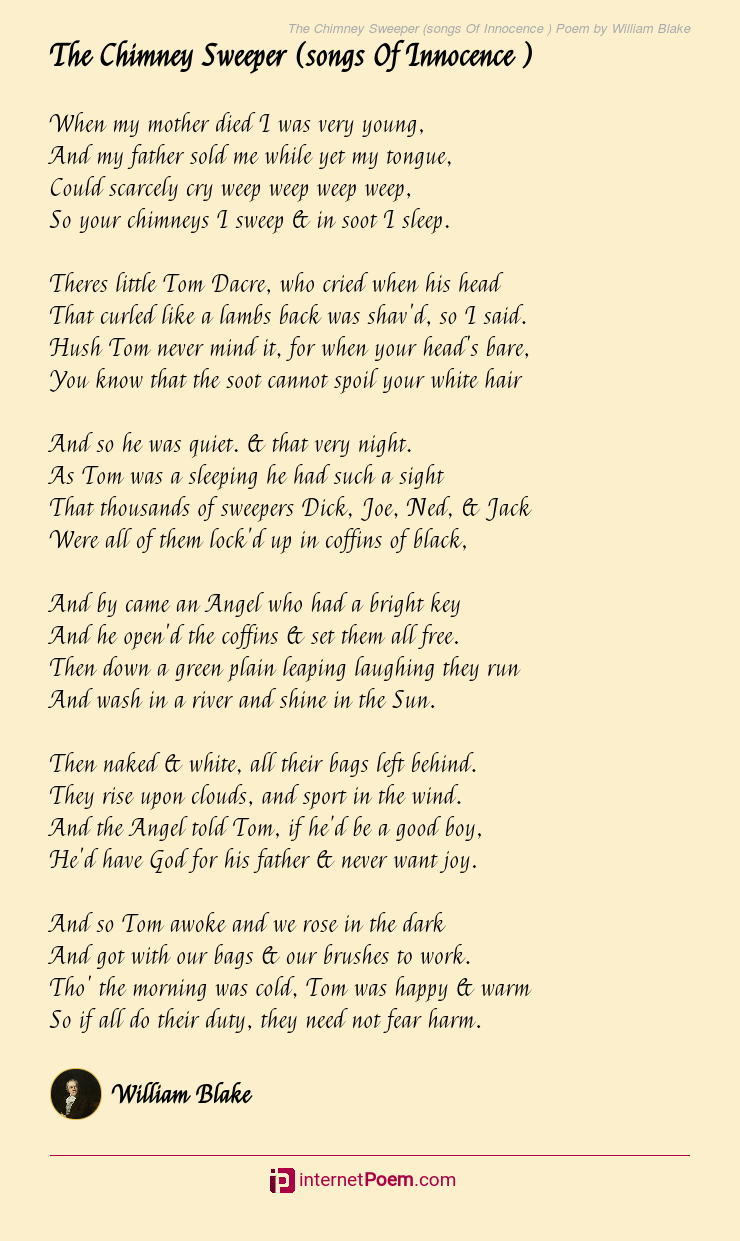

Most of them even died either falling through the chimneys while cleaning or from lung cancer and other diseases because of breathing in the soot. These kids suffered much not just physically but also mentally. Often they had to sleep unfed and they dressed up in poor clothes. The children were oppressed and badly treated in this business. At the age of four or five most of the children were sold, because of their small size they were perfect to clean the soot of the chimneys. The parents sell their children for food. It was very common in England in the late 18th and 19th centuries. In this poem, William Blake criticized the dark background of child labor. The technology advancement resulted in a great increase in child labor. Moreover, the use of iron increased in construction and machinery. The industrial revolution brought many improvements like better transportation systems, the advent of steam power, invention of machine tools and different chemicals. When the poem was published, it was the time of the great industrial revolution in Britain. In this poem, he tells us about his new fellow sweeper and the dream that he had while sleeping at his workplace.

The speaker of the poem is unnamed, however, he is one of the young chimney sweepers. As the name suggests, the poem is about the little chimney sweepers who live a black life, cleaning the soot of the chimneys. “Songs of innocence” was published in 1789 and “Songs of experience” in 1794. “The Chimney Sweeper” is a poem written by William Blake.


 0 kommentar(er)
0 kommentar(er)
